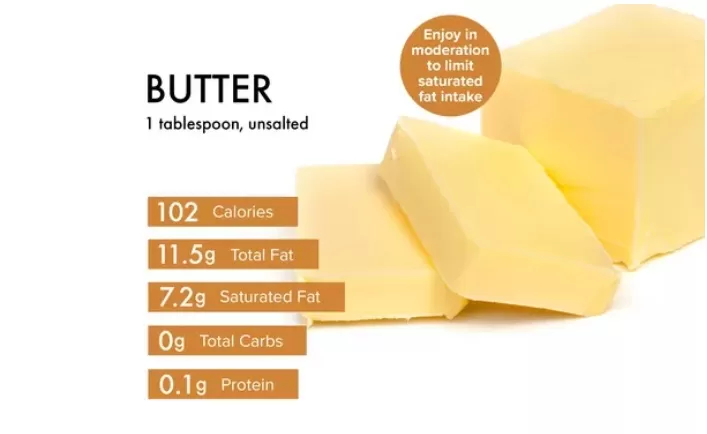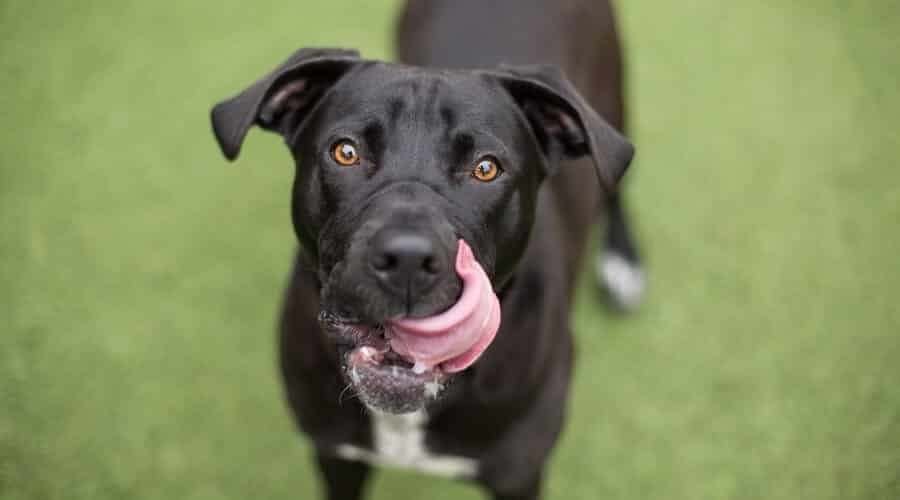Can My Dog Eat Butter? Though butter is high in calories, it can be safely consumed by dogs as long as they are limited to a small amount each day. Butter is also a good source of some vitamins and minerals, including vitamin A and vitamin K.
Table of Contents
Dogs should avoid butter if they are being treated for epilepsy or heart disease, as it can increase their risk of developing these conditions.
Information about butter

Butter is a dairy product made from churning just the cream of cow’s milk. Per tablespoon, butter contains about 100 calories with 12 grams of fat, negligible amounts of protein, and no carbohydrates. It contains some vitamin A, vitamin D, sodium, and potassium in small amounts as well as more significant amounts of cholesterol.
Why butter is a good option for dogs?
Butter is a good option for dogs because it is a dairy product and it has many nutrients that are beneficial to them. Butter contains high levels of CLA, which is short for conjugated linoleic acid. This type of fatty acid is beneficial to dogs because it has been shown to improve their cholesterol levels and decrease the risk of heart disease. Additionally, butter is rich in vitamins A and K, both of which are essential for the health of a dog’s skin and coat.
Also Read: How to Remove a Tick from Your Dog’s Body
Tips on how to introduce butter into their diet without making them sick
Introducing butter into a dog’s diet can be tricky, but with a little bit of forethought and careful planning, it can be done without worrying about side effects. Here are five tips to help make the transition smoother:
- Start slowly – Introducing butter into a dog’s diet should always be done gradually, over a period of several weeks or months. If the butter is introduced abruptly, the animal may become sick.
- Be prepared – Always have plenty of water on hand when introducing butter to your pet’s food. And make sure you have some type of treat on hand in case things go wrong – such as if your dog becomes overeaten or diarrhea occurs.
- Choose quality butter. Make sure the butter you’re using is high-quality, full-fat dairy products that have not been treated with antibiotics or hormones. These artificial additives can upset your dog’s stomach and lead to diarrhea and other problems.
- Monitor your dog’s response carefully. Be patient and keep an eye on your dog’s behavior during and after the introduction of butter to see if there are any adverse effects. If everything goes smoothly, you’ve successfully added butter to your pet’s diet!
The benefits of giving butter to your dog: Explains the many health benefits of feeding your dog butter
Dogs have been shown to have a wide variety of health benefits when fed a diet that includes butter. Butter is rich in vitamins A, D, E, and K which are all essential for the dog’s health. Butter also contains CLA which has been shown to reduce bad cholesterol levels and help maintain heart health. Feeding your dog butter has also been shown to improve their coat, digestion, and energy levels.
Giving your dog butter is a great way to provide them with many health benefits. Butter is packed with vitamins, minerals, and fatty acids that can help your dog stay healthy.
Here are 5 of the most important benefits of feeding your dog butter:
- Butter is a source of healthy fats. Fatty acids are essential for dogs’ health and diets that are low in fat can lead to problems such as obesity and diabetes. Giving your dog butter will help them get the necessary fatty acids they need to stay healthy
- Butter is packed with vitamins and minerals. Vitamins and minerals play important roles in keeping dogs healthy and there are many different types found in butter including vitamin A, vitamin K, potassium, magnesium, zinc, selenium, and antioxidants like Vitamin E
- Butter is a good source of essential fatty acids, which are important for keeping your dog’s skin and coat healthy
- Butter is also a good source of protein, which helps keep your dog’s muscles strong.
- Butter contains calcium, magnesium, and other minerals that can help keep your dog’s bones strong
FAQs on Dog Eating Butter
Can dogs have toast with butter?
While dogs can technically have toast with butter, it is not recommended to feed it to them as a regular part of their diet. Toast with butter is high in fat and calories, which can lead to obesity, pancreatitis, and other health issues in dogs if fed regularly or in large amounts. Additionally, many dogs are lactose intolerant and can have difficulty digesting dairy products like butter, which can cause digestive upset, including diarrhea, vomiting, and gas.
If you want to give your dog toast as an occasional treat, it is best to avoid adding butter or other spreads that are high in fat and calories. Instead, you can offer your dog small pieces of plain, unsalted toast, which can be a good source of carbohydrates and fiber. However, it is important to remember that treats should make up only a small portion of your dog’s overall diet and should be given in moderation.
Is Amul butter good for dogs?
It is not recommended to feed your dog Amul butter or any other brand of butter as a regular part of their diet. While a small amount of butter as an occasional treat is generally safe for dogs, it is high in fat and calories, which can cause digestive upset and other health issues if fed regularly or in large amounts.
How much butter can I give my dog?
It is generally not recommended to feed your dog butter as a regular part of their diet. If you want to give your dog a small amount of butter as an occasional treat, limit it to a small piece (no more than 1/4 teaspoon) to avoid digestive upset and weight gain.
What are some healthier alternatives to butter for dogs?
Some healthier alternatives to butter for dogs include small pieces of lean meats, fruits and vegetables, and specially formulated dog treats that are low in fat and calories. Always check with your veterinarian before introducing new foods to your dog’s diet.
Conclusion
While butter is not toxic to dogs, it is not recommended to feed it to your dog in large quantities or as a regular part of their diet. Butter is high in fat, which can cause digestive issues like pancreatitis, obesity, and diarrhea in dogs. Additionally, butter is not a source of essential nutrients for dogs and can lead to nutritional imbalances if fed regularly.
If you want to give your dog a small amount of butter as an occasional treat, it is generally safe to do so. However, it is important to monitor your dog’s reaction to the butter and watch for any signs of digestive upset or allergic reactions.
Overall, it is best to avoid feeding your dog butter and opt for healthier treat options that are specifically designed for dogs, such as carrots, apples, or small amounts of lean meats.

